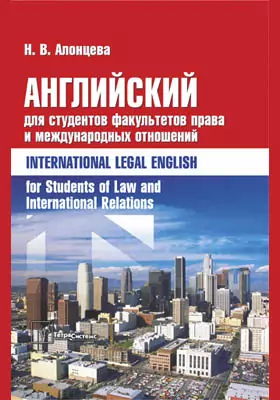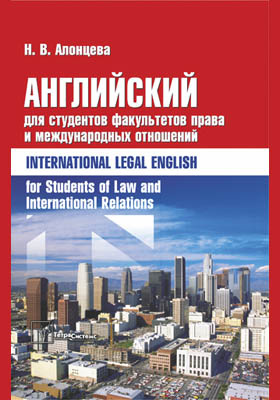Английский для студентов факультетов права и международных отношений = International Legal English for Students of Law and International Relations
Место издания: Минск
ISBN: 978-985-470-867-6
Страниц: 398
Артикул: 74883
Возрастная маркировка: 16+
Краткая аннотация книги "Английский для студентов факультетов права и международных отношений"
Пособие состоит из двух частей. В первой части представлены ключевые темы по международному публичному праву и соответствующие задания, направленные на развитие и совершенствование умений, обеспечивающих профессионально-коммуникативную деятельность специалиста-международника. Во вторую часть пособия включены дополнительные тексты на английском и русском языках для реферирования и перевода. Пособие снабжено ключами, что позволяет использовать его как для аудиторной, так и для самостоятельной работы. Адресовано студентам юридических факультетов и факультетов международных отношений.
Содержание книги "Английский для студентов факультетов права и международных отношений"
ПРЕДИСЛОВИЕ
PART I
UNIT 1. THE CONCEPT OF INTERNATIONAL LAW
UNIT 2. INTERNATIONAL ORGANIZATIONS
UNIT 3. THE UNITED NATIONS ORGANISATION
UNIT 4. THE LAW OF TREATIES
UNIT 5. DIPLOMATIC AND CONSULAR LAW
UNIT 6. INTERNATIONAL LEGAL MEANS FOR RESOLVING INTERNATIONAL DISPUTES
UNIT 7. HUMAN RIGHTS AND INTERNATIONAL LAW
UNIT 8. INTERNATIONAL COOPERATION IN CRIME CONTROL
UNIT 9. INTERNATIONAL LEGAL PROTECTION OF THE ENVIRONMENT
UNIT 10. INTERNATIONAL HUMANITARIAN LAW
PART II
ADDITIONAL TEXTS
KEYS
UNIT 1. THE CONCEPT OF INTERNATIONAL LAW
UNIT 2. INTERNATIONAL ORGANIZATIONS
UNIT 3. THE UNITED NATIONS
UNIT 4. THE LAW OF TREATIES
UNIT 5. DIPLOMATIC AND CONSULAR LAW
UNIT 6. INTERNATIONAL LEGAL MEANS FOR RESOLVING INTERNATIONAL DISPUTES
UNIT 7. HUMAN RIGHTS AND INTERNATIONAL LAW
UNIT 8. INTERNATIONAL COOPERATION
UNIT 9. INTERNATIONAL LEGAL PROTECTION OF THE ENVIRONMENT
UNIT 10. INTERNATIONAL HUMANITARIAN LAW
LIST OF REFERENCE BOOKS
Все отзывы о книге Английский для студентов факультетов права и международных отношений
Отрывок из книги Английский для студентов факультетов права и международных отношений
93 The Classification of Treaties Treaties may be classified according to their purpose. Political treaties include alliances, peace settlements, disarmament agreements, and territorial settlements. Commercial treaties deal with tariffs, fish-ing rights, navigation, and the opening of consulates and offices of tourism. Some treaties are constitutional or administrative documents. The United Nations Charter is an example. Such treaties establish and regulate international organizations and specialized agencies. There are treaties that deal with criminal justice, that define international crimes such as terrorism, and that provide for extradition, or the process by which one state surrenders to another an individual for trial. Treaties pertaining to civil law are conventions for the protection of human rights and for the enforcement of trademark and copyright laws. The codifying of international law also comes within the scope of treaties. These include rules for the conduct of war and the settle-ment of disputes. A single treaty often embraces several of these ele-ments. The principle that treaties must be observed – pacta sunt servanda – constitutes the foundation of the law of treaties. The Vienna Conven-tion on the Law of Treaties states this as follows: "Every treaty in force is binding upon the parties to it and must be performed by them in good faith." This means that each treaty that is legitimately in force is legally binding on all signatories. It must be carried out in good faith, i.e. not formally but honestly; each signatory State has the duty to take all measures necessary to carry out the treaty's provisions in accordance with its aims and principles. The principle of good faith prohibits abuses of treaty rights – that is, their use to the disadvantage of the legitimate rights and interests of other States. Finally, an impor-tant substantive element of the principle that "treaties must be ob-served" is that a State may refuse to implement a treaty ...
С книгой "Английский для студентов факультетов права и международных отношений" читают

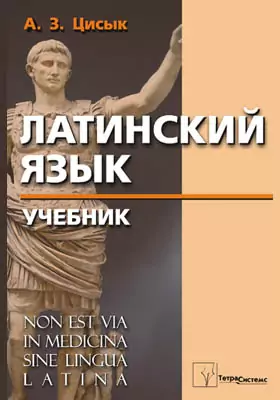
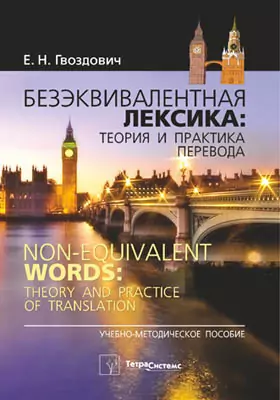









Бестселлеры нон-фикшн



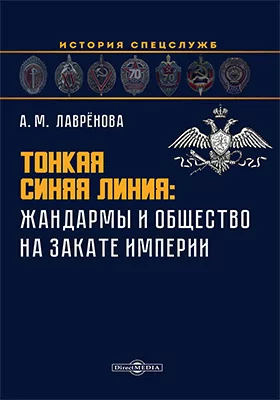









Новинки книги нон-фикшн













Алонцева Н. В. другие книги автора
и мы свяжемся с вами в течение 15 минут
за оставленную заявку

